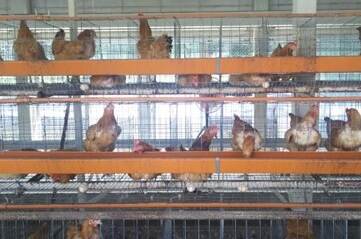Japan News Update #54 (October 2023)
Stay updated on the latest agricultural news in Japan, that we publish every month.
by Yuki Sano
Poultry Trends in Japan
The global trend towards improving livestock living conditions contrasts with Japan's slow progress in farm animal welfare. Many in Japan show little concern for the well-being of animals destined for consumption, reflecting widespread apathy. In 2022, former farm minister Takamori Yoshikawa faced legal consequences for accepting bribes from an egg production company to oppose international animal welfare standards. Japan's farm ministry recently created non-binding guidelines, but their widespread adoption remains uncertain in an industry focused on production efficiency.
Source: Japan lagging world in introducing livestock welfare standards

A new market access deal will allow British cooked poultry meat products to be sold in Japan, benefiting UK farmers, processors, and exporters. Although UK poultry meat exports to Japan started in 2021, Avian Influenza outbreaks led to trade restrictions. The recent agreement permits smoother trade of cooked poultry meat, offering opportunities for high-value exports estimated to be worth over £10 million in the next five years. Moy Park, a major poultry producer, became the first to export cooked poultry meat to Japan under this deal from its Grantham facility.
Toward sustainability on marine resources
Kindai University has achieved a groundbreaking milestone by complete farming (hatchery-based aquaculture) Japanese eels, a world first for a university. However, practical implementation faces challenges due to high costs. Artificially breeding one young fish costs around $20, significantly lower than in previous years but still higher than natural young fish priced at $1.20 to $4. The Fisheries Agency aims to farm Japanese eels and other major cultured fish by 2050, promoting sustainability and reducing reliance on natural resources.
Source: Japan's Kindai Univ. succeeds in complete farming of eels

Agri-tech to ease labor shortage
Japan's first cashless store, Catch & Go, has been introduced in Yokohama, allowing customers to grab items and leave without scanning at a register. Telecommunications firm NTT Data Corp. and Daiei Inc., a Japanese supermarket operator, collaborated on this innovative concept, eliminating the need for time-consuming scanning. The store aims to ease the burden on the labor-shortage plagued retail industry by streamlining transactions, enhancing customer convenience, and potentially generating new demand. Following the Yokohama launch's success, Daiei may expand this innovative shopping experience.
Source: In Japan 1st, cash register-free 'walk through' food store to open in Yokohama
The food processing industry's labor productivity is at just 60% of the national average due to complex food preparation tasks like deboning fish and canning ingredients, which are challenging for robots because of the need for defined shapes and varying textures. A shrinking and aging population has led to chronic labor shortages, prompting startups like Connected Robotics to develop robots like Delibot, capable of managing 250 food containers per hour without rest, providing a potential solution to the industry's challenges.
Source: Robots could rescue Japan's labor-starved food industry
Japan's agriculture industry is grappling with an aging workforce and declining population. Between 2015 and 2020, the number of agriculture workers decreased by over 20%, with nearly 70% of the remaining farmers being 65 or older. Private companies and local governments are collaborating to develop technologies, focusing on 5G mobile internet, to assist aging farmers and compensate for the shrinking workforce. Smart-farming technologies, including those generated by companies like NTT AgriTechnology, the agricultural-production division of NTT, aim to enhance efficiency in agriculture amid changing demographics.